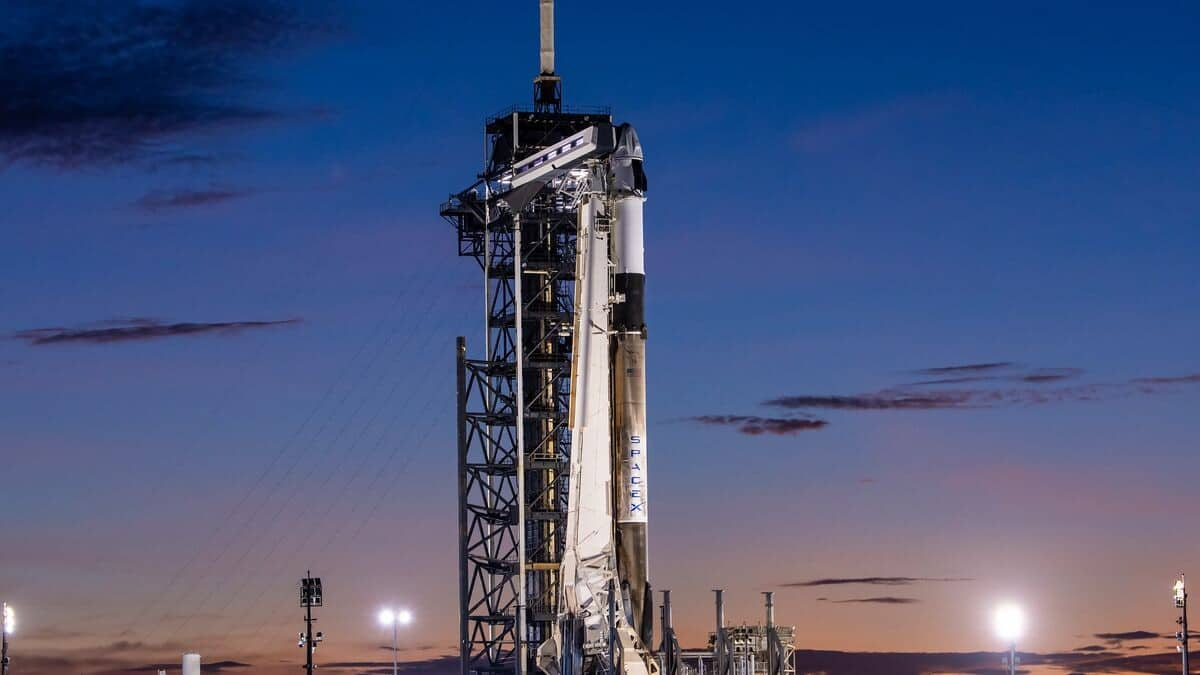
SpaceX's Polaris Dawn launch delayed due to helium leak
What's the story
SpaceX has postponed the launch of its groundbreaking Polaris Dawn mission, initially set for today from NASA's Kennedy Space Center in Florida. It is now rescheduled to launch tomorrow at 3:38am EDT (1:08pm IST). The delay was necessitated by a helium leak, detected on the 'Quick Disconnect' umbilical. Despite this setback, both the Falcon rocket and Dragon spacecraft remain in good condition, and the crew continues to prepare for its multi-day mission to low Earth orbit.
Timings
A look at backup launch opportunities
In case of any unforeseen circumstances, two additional launch opportunities have been arranged for the same day at 5:23am EDT (2:53pm IST) and 7:09am EDT (4:39pm IST). The launch event can be viewed through a SpaceX webcast that will commence around midnight EDT (9:30am IST).
Technical glitch
Understanding the helium leak issue
The quick disconnect umbilical is an interface that links the Falcon 9 with a line from the launch tower. While helium is not a propellant for Falcon 9's Merlin engines, which use kerosene and liquid oxygen, it is utilized by SpaceX to pressurize fuel lines. This technical issue has led to the postponement of Polaris Dawn, marking a slight delay in this historic mission.
Mission details
A milestone in private human spaceflight
Polaris Dawn is the first of three planned missions in the Polaris Program, which is a human-spaceflight project led by billionaire entrepreneur Jared Isaacman. The crew for this mission includes pilot Scott "Kidd" Poteet, a former Lieutenant Colonel in the US Air Force, and mission specialists Sarah Gillis and Anna Menon, both SpaceX engineers. Isaacman and Gillis will conduct a spacewalk on Day 3 of the mission. This will mark the first extravehicular activity ever performed on a commercial mission.
Goals
Polaris Dawn's ambitious objectives and experiments
The Polaris Dawn mission aims to reach an altitude of about 1,400km from Earth, further than any other crewed mission since Apollo 17 in 1972. The crew will conduct multiple science and technology experiments, during their five-day stay in orbit. These studies are designed to advance human health on Earth, and during long-duration spaceflights. The mission will also test Starlink's laser-based communication system in space, offering data for future space communication systems.